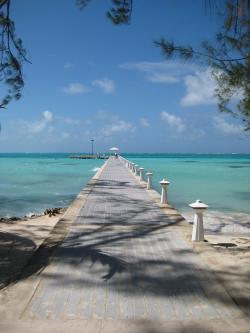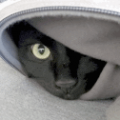jks
About
- Username
- jks
- Joined
- Visits
- 36,257
- Last Active
- Roles
- Member, Administrator, Moderator
- Points
- 639
Reactions
-
GPS receives lots of satellites, but doesn't get fixes
-
Unable to Access Forum from Home
-
Connection lost every day
Yes, question is too short to understand exactly what is being talked about.
But to me it sounds like it's the local (private) ip address that the router is moving around for some reason. E.g. you y initialldiscover it's 192.168.1.101 and make a connection. But then later after trying to reconnect there is no response at that address and you have to go through the rediscovery process again only to find it's now at 192.168.1.107.
This might be caused by the DHCP server in the router configured with a really short "lease time", like minute or hours instead of days or weeks. Ideally the Kiwi's Ethernet MAC address should be bound to a fixed private ip address in the DHCP static ip configuration table. But that takes some effort to setup (that's what I do here). That way the local ip addresses never move.
Make sure this is not the problem before you send him off on the goose chase that is DDNS, lol.
-
Unable to Access Forum from Home
-
KiwiSDR production status and availability
@KB8DOA This morning (19 Jan 2021) R&S shows 13 Kiwi kits in stock. Please get on them immediately and make sure your two backordered units from last July get shipped so this awful situation can finally be resolved.
My sincere apologies for this situation. I never got any answers from anyone, including Seeed, about what happened exactly. I have guesses, but that's all. There is simply no excuse for it.
-
** FIXED ** Flakey DC Plug on brand new Kiwi
The "Quickstart" if printed (A4) is about 37 pages now.
So? Who prints the whole thing out? I agree the website format is in desperate need of improvement, but that's a separate issue.
Also, "quickstart" appears in the URL for historical reasons and cannot be changed due to being embedded in (now) read-only content. But the document never says "QuickStart" internally. It's titled "Operating Information". The only QuickStart doc is the printed one inside the shipping box. It has its own PDF link: http://kiwisdr.com/quickstart/quickstart.pdf
How about an FAQ (forum) post with the most frequently asked questions that could have a short answer but then also point to the relevant QS sections or helpful forum posts.
No. Just improve the current FAQ. Add a "top 10" to the existing FAQ index perhaps. What would I do otherwise? Remove the old FAQ? Have two FAQs? Point the old to the new? How many new users read the forum versus the website? So many ill-considered questions here.
FYI The forum links in the quickstart are to the older forum.
Thanks. I thought I had done this. Fixed now.
-
KiwiSDR production status and availability
Generally out-of-stock now except for a few here and there and some board-only versions at Mouser. But telemetry reports 75 Kiwis are in final test at Seeed. So more on the way.
@KB8DOA: I have emailed Seeed asking why RS didn't (apparently) receive their order of 5 units from the last build. I can't understand why that situation is so screwed up.
-
KiwiSDR production status and availability
-
New links: rx.kiwisdr.com, map.kiwisdr.com, snr.kiwisdr.com, forum.kiwisdr.com
You can also use these links which might be slightly easier to remember: -
OV display time adjustment needed






